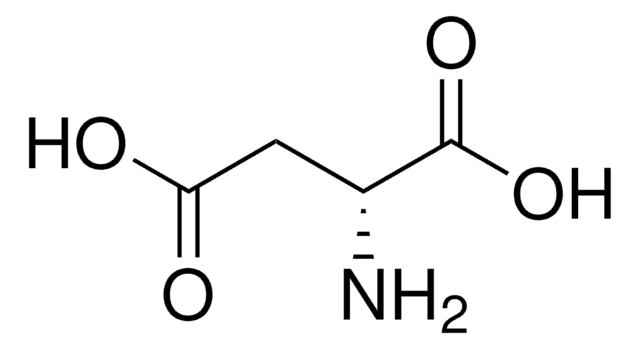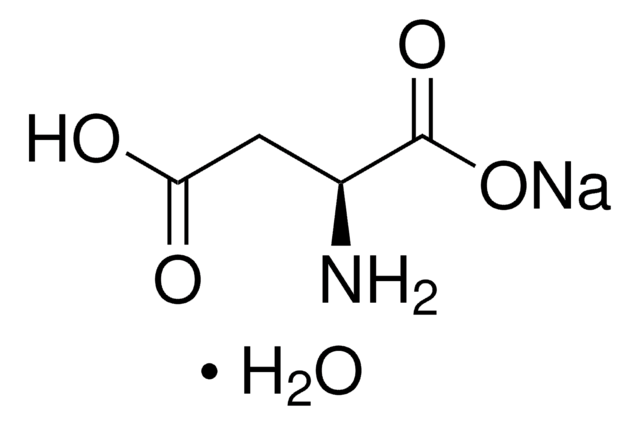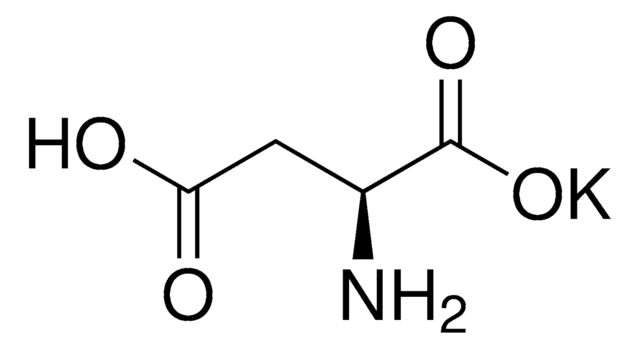A9256
L-Aspartic acid
≥98% (HPLC)
Synonym(s):
(S)-(+)-Aminosuccinic acid, (S)-Aminobutanedioic acid
About This Item
Recommended Products
product name
L-Aspartic acid, reagent grade, ≥98% (HPLC)
grade
reagent grade
Quality Level
assay
≥98% (HPLC)
form
powder, crystals or chunks
color
white to off-white
mp
>300 °C (dec.) (lit.)
solubility
H2O: 5 mg/mL
0.5 M HCl: 50 mg/mL (with heat)
1 M NaOH: 50 mg/mL
SMILES string
N[C@@H](CC(O)=O)C(O)=O
InChI
1S/C4H7NO4/c5-2(4(8)9)1-3(6)7/h2H,1,5H2,(H,6,7)(H,8,9)/t2-/m0/s1
InChI key
CKLJMWTZIZZHCS-REOHCLBHSA-N
Gene Information
human ... CA1(759) , CA2(760)
rat ... Grin2a(24409)
Looking for similar products? Visit Product Comparison Guide
Application
Biochem/physiol Actions
Storage Class
11 - Combustible Solids
wgk_germany
WGK 1
flash_point_f
Not applicable
flash_point_c
Not applicable
ppe
dust mask type N95 (US), Eyeshields, Gloves
Certificates of Analysis (COA)
Search for Certificates of Analysis (COA) by entering the products Lot/Batch Number. Lot and Batch Numbers can be found on a product’s label following the words ‘Lot’ or ‘Batch’.
Already Own This Product?
Find documentation for the products that you have recently purchased in the Document Library.
Customers Also Viewed
Chromatograms
application for HPLCapplication for HPLCOur team of scientists has experience in all areas of research including Life Science, Material Science, Chemical Synthesis, Chromatography, Analytical and many others.
Contact Technical Service







